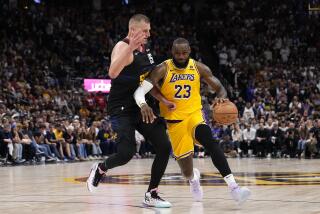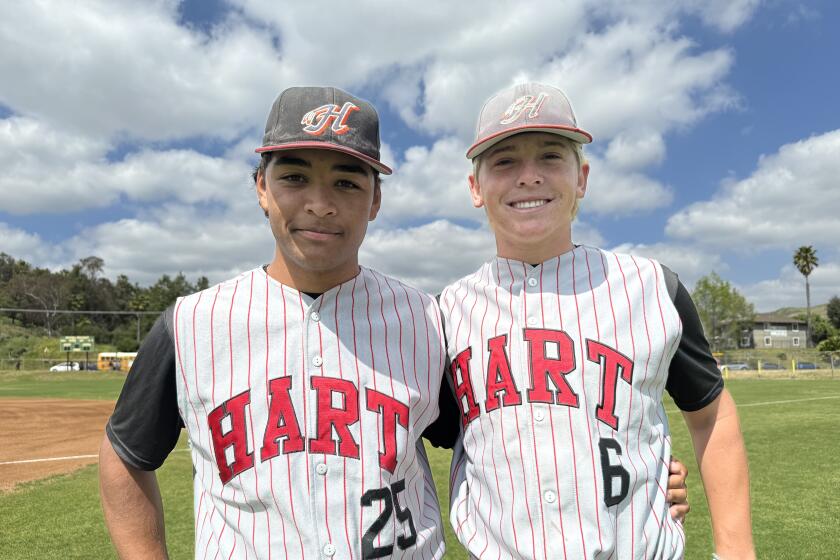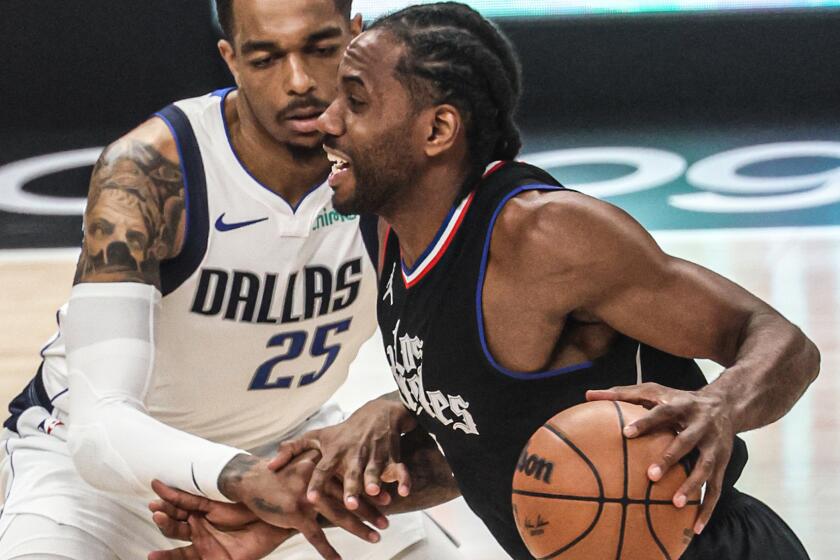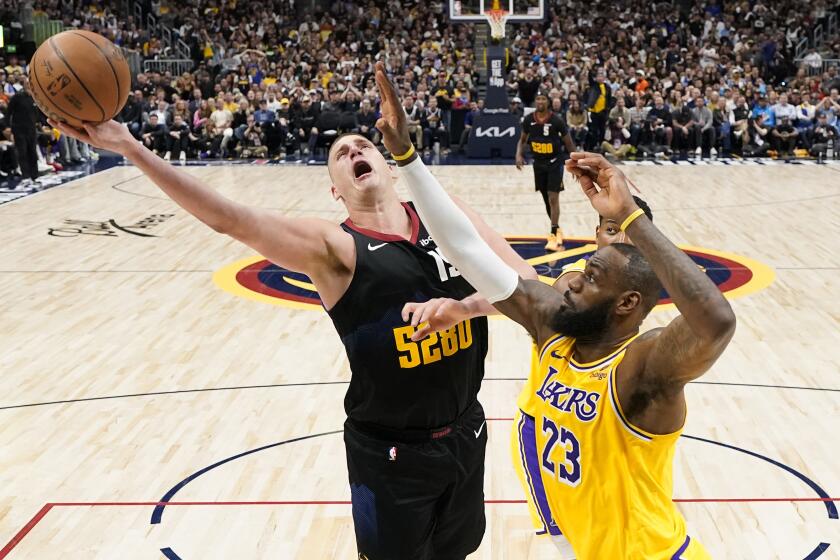Agassi still has a hold on court
For many years, Andre Agassi stole the show at the U.S. Open. Now, three years out of the tennis game, he’s doing it in coat and tie.
Monday was opening day. They played 56 matches. Defending champions Roger Federer and Serena Williams won handily. There was drama on the back courts, great play on the grandstand, exceptional effort everywhere.
And then, Monday night, the bald guy from Las Vegas walked to the microphone and one-upped everything. He was there as part of a ceremony honoring “athletes who have given back.”
The other honorees, Doug Flutie, David Robinson and Mia Hamm, did not speak. This was, after all, Agassi’s hall of oratory. Center court, Arthur Ashe Stadium, the usual 20,000-plus people there to listen, as there had been that day in 2006, when he lost to Benjamin Becker, took the microphone and said goodbye as articulately as any athlete, before or since.
Some athletes become Terrell Owens. Some become Socrates.
Agassi, the latter, began as a long-haired and angry youngster, sent off to play tennis and little else. He now jokes that his best time as a student was “the three years I spent in eighth grade.”
Now, when he speaks, it is not from things learned in books.
“Life’s blessings are not handed out evenly,” he told the crowd, still settling back in its seats after a spontaneous standing ovation. “Caring means doing.”
He was being honored for his work on behalf of the Andre Agassi Foundation. It has raised $75 million to date and used it to start a charter high school in a poor part of Las Vegas.
He talked about this year’s first graduation, in which seniors paraded across a special bridge and stopped halfway to show a sign to the underclassmen below, indicating which college they would be attending. Every senior in the school was accepted to a college.
“100%,” Agassi said, proudly.
Agassi quoted one of the senior commencement speakers, who is now in a college pre-med program.
“She said that some who are short-sighted have labeled us as at-risk,” Agassi said. “She said that was right. That we are at-risk. At risk of excellence.”
The media sought an encore of his on-court performance. So he came, once again, into the room where he had spent so many hours, most happy, some sad, as he discussed the outcome of his matches. He played here for 21 years, won in 1994 and 1999, and had three completely joyous news conferences.
Yes, three, including one after that final match and third-round loss in 2006, when he followed his tearful stadium goodbye with a memorable warm-and-fuzzy session with a press corps he once scorned and often scorned him in return.
Now, he was back again, to elaborate on his on-court appearance Monday night.
He was asked about the graduation at Andre Agassi College Preparatory Academy.
“I was on the other side” of the bridge, “kind of receiving them as they came across, just looking at their faces,” he said. “Pretty incredible.”
He was asked about being sent off, as a child prodigy, to the Bollettieri Academy in Florida.
“There were a lot of moments I didn’t understand, I was confused by, scared by,” he said. “A lot of time I wanted to hide from facing it. But I’m still in a process, so don’t believe what you are seeing here, either.”
He was asked about other foundations, and their tendency to lack focus.
“Having a foundation is like choosing to have a child,” he said. “You better be ready to care about it.”
He was asked about the moment of decision when he had just lost a match, slipped to No. 147 in the world, was still only 27 years old, and was sitting in a hotel room in Stuttgart with his coach at the time, Brad Gilbert, who had challenged him to find new resolve, to use all the talent he had and not just fade away.
“I gave him a big hug,” Agassi said, “and said I’m going to choose this. I looked out at the streets. I saw the lights of the cars in Germany. I know every car out there was going somewhere they possibly didn’t want to go. . . . It’s not till you choose for yourself that it is really going to resonate.”
He was asked whether there will be more schools. The dreamer turned bottom-line businessman.
“If you help me raise the money,” he said.
With Agassi, you never know what you are going to get. You just know it will be good.
He used to be special to tennis. Now he’s just special.
--
More to Read
Get our high school sports newsletter
Prep Rally is devoted to the SoCal high school sports experience, bringing you scores, stories and a behind-the-scenes look at what makes prep sports so popular.
You may occasionally receive promotional content from the Los Angeles Times.







